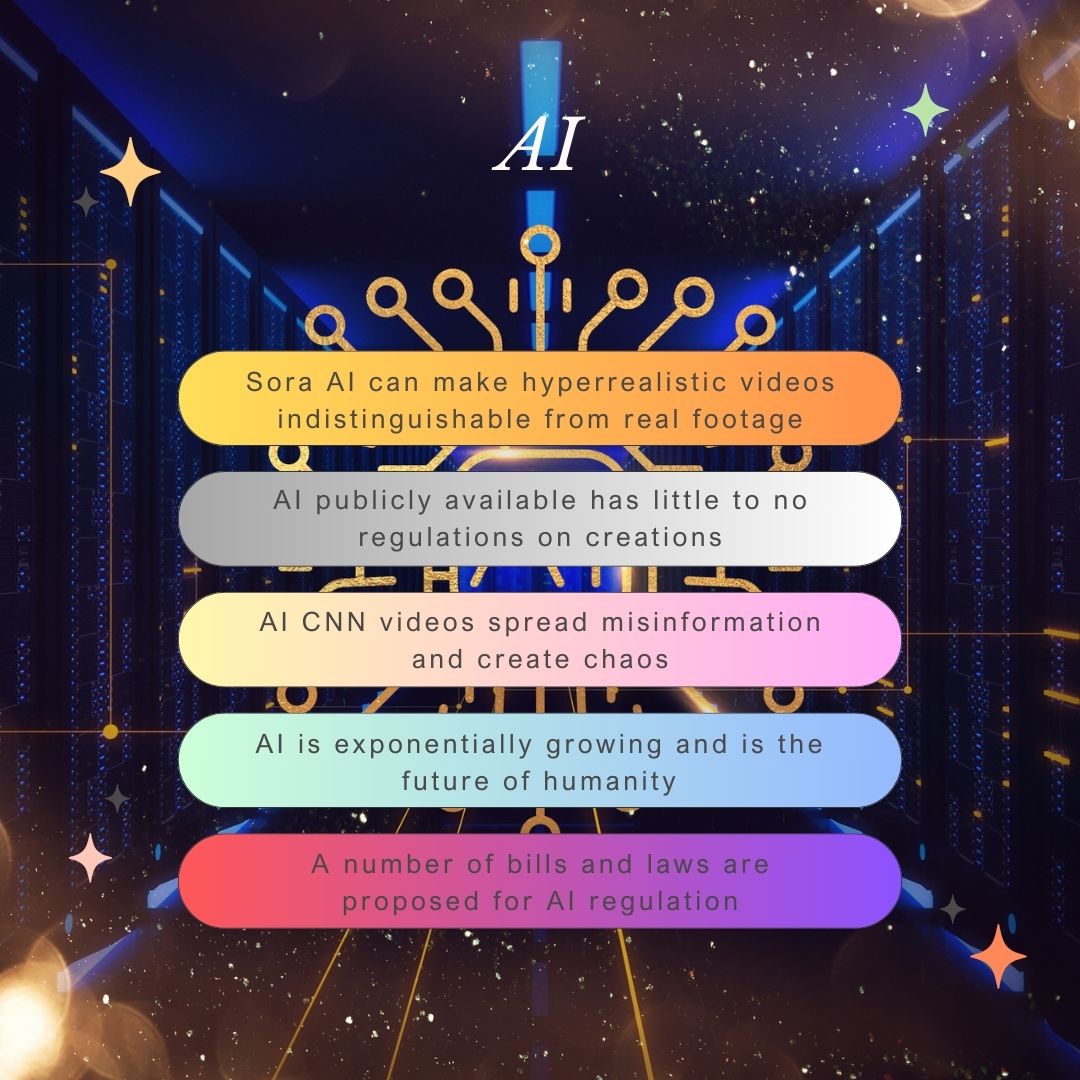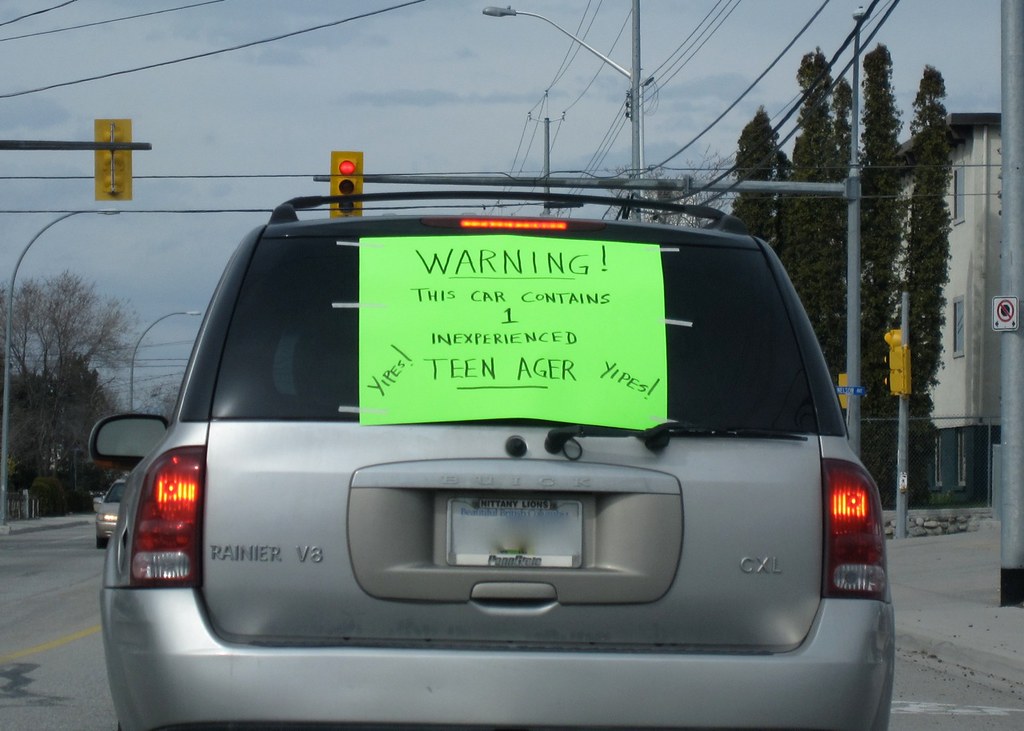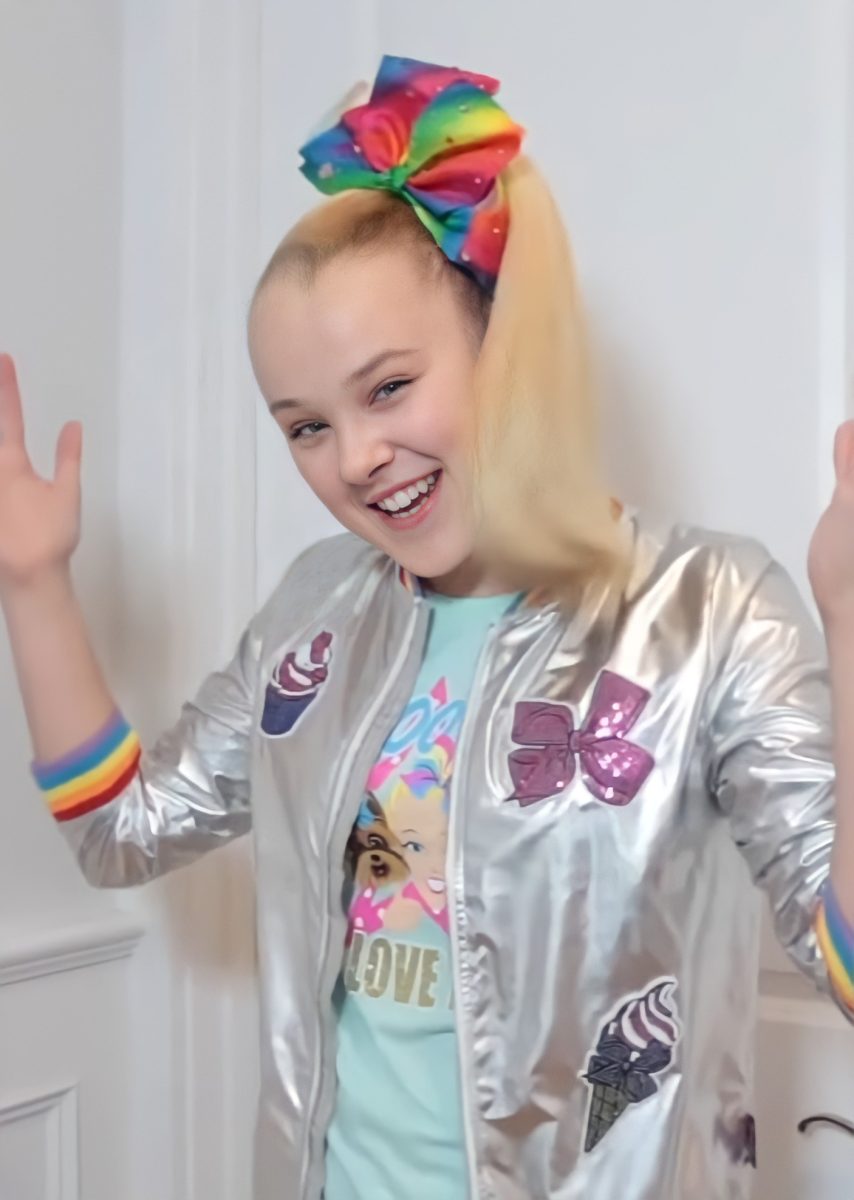*The opinions expressed within the content are solely the author’s and do not reflect the website’s or its affiliates’ opinions and beliefs.”
OpenAI has served as a pioneer in technology, paving the way for artificial intelligence and its accessibility to the public. Projects that the OpenAI organization has worked on have already gained notoriety, including Chat GPT permanently changing the way we teach and learn, and the image generation software, DALL.E., sparking mass discourse and protest amongst creatives. However, the project that many have their eyes on right now is SORA AI. This program has the potential to make hyper-realistic videos that are almost indistinguishable from real footage. OpenAI has ensured that all of these programs are publicly available to use any time they want. But should we? Enthusiasts argue that AI has the potential to help innovate and start a revolution, but right now AI has little to no regulation on what people can create, thus causing more harm than good.
Whether it’s characters, celebrities, or politicians, giving people the ability to create whatever they want with these assets has massive ramifications. There have been multiple cases of AI being used to spread misinformation. According to CNN, videos were spread with an AI news anchor lying about Venezuela’s economic and political prosperity. These videos, which were promoted by Venetian government officials, were part of a national misinformation campaign to combat the rampant protest and unrest amongst the people, who were fighting low wages and poor living conditions. These AI videos have been utilized to spread misinformation on a global scale, as well as to harm targeted individuals.
Moreover, celebrities have been major targets of AI from the beginning. Because AI can create anything with the click of a button, people can use a celebrity’s likeness and put them in humorous scenarios and roles. As expected, users went too far with this technology. According to Vice, in early 2024, X (formerly known as Twitter) was flooded with inappropriate and explicit AI photos of the popular musician and songwriter, Taylor Swift. This was a massive breach of privacy and she was not the only person who went through something like this. Users can use anyone else’s likeness in any way they see fit without the subject’s permission. This can not only threaten the reputation of individuals used in the program but also risks the safety of our children with potentially explicit images/videos.
Technology companies continue to explore the possibilities of AI in hopes of improving users’ quality of life. However, by giving the public the gift of AI, companies have opened the door to misinformation and have made it more difficult to stay informed and find privacy. Regulation needs to happen and it needs to be implemented now. Luckily, many laws and bills have been proposed to help regulate AI, and unions in creative fields such as the Writers Association of America have pushed against the implementation of AI in production. Regardless, our worry is whether we will be able to regulate and keep up with the exponential growth of artificial intelligence.











